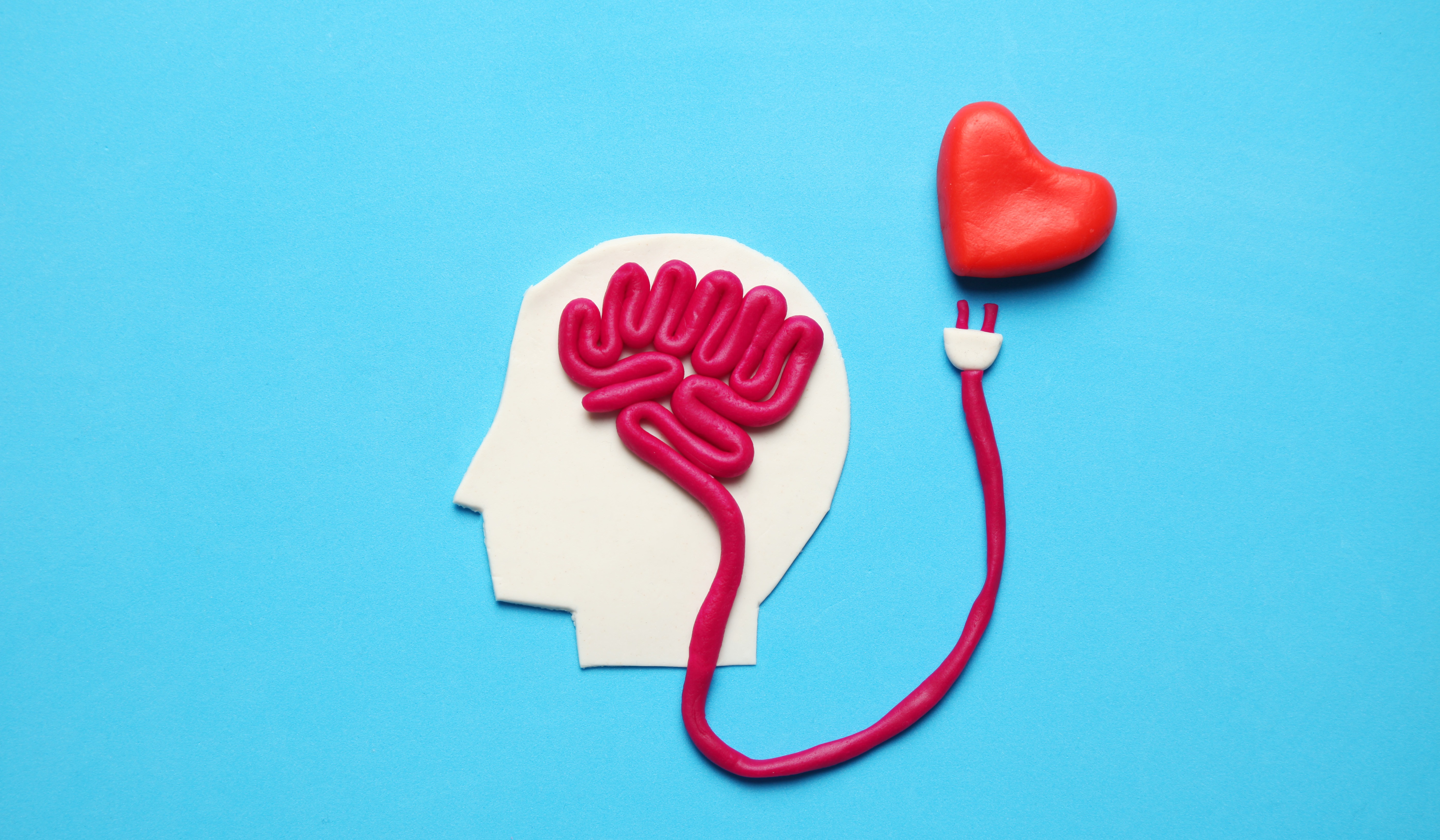A Brain-Friendly Brain in a World of AI
Technology is changing our world in an exponential way. And within technology, Artificial Intelligence is one of the fields that generates and has generated higher expectations. In fact, it is said that we are the last generation in history smarter than machines.
In reality, the concept of “artificial intelligence” is not new. It is older than nearly everyone reading this article, and was actually presented in 1956, eleven years after World War II, by a computer scientist named John McCarthy (1927-2011).
He defined it as “the science and ingenuity of making intelligent machines, especially intelligent computer programs.”
Machine learning and programming are sciences which require data on a certain scale.Thus, they tell us the machines not only react to a situation but also prepare themselves to act in the most appropriate way.
McCarthy (along with Claude Shannon, who created the first computer, the K model, in 1937, and Marvin Minsky of MIT, are considered the parents of Artificial Intelligence at the 1956 Dartmouth conference) got the term right, which consists of two positive words.
Intelligence comes from Latin, from the sum of “intus” (between) and “legere” (choose). Intelligence is knowing how to choose. The smartest people are the ones who make the best choices. Therefore, intelligence is knowing how to choose and it is demonstrated by the consequences, although we have ended up accepting intelligence as “what the intelligence tests measure”. Nassim Taleb has shown that IQ (Intellectual Quotient) is nothing other than pseudoscience.
In addition, the intelligence that emerged as an idea more than half a century ago is not that of living beings, but an “artificial” intelligence. The artificial is manufactured by human beings and not by nature. And mind you, it is also the false, the simulated and the deceptive.
Artificial intelligence is already in our lives in many ways, including the search engines of technology companies such as Amazon or Alibaba, in the recommendations of Netflix, in personal assistants like Siri or Alexa, in the IBM Watson platform, etc. The promise is that we haven't seen anything yet. At the cinema, it was present in the Matrix trilogy, in ‘The Bicentennial Man’ with Robin Williams, based on Isaac Asimov’s story, or in ‘Her’ by Spike Jonze.
The surprising thing is the shared vision of the machine in front of the human being. It is what’s proposed in the first ‘Terminator’ (1984) by James Cameron, with Arnold Schwarzenegger and Linda Hamilton. T-800 is a killer robot that comes from the future to kill Sarah Connor, future mother of the human leader against the machines. It is set in 2029, in less than ten years, and it presents an apocalyptic scenario where life is especially difficult. The world is governed by an artificial intelligence system called Skynet and the soundtrack gives more drama to the film.
Fortunately, people are not, as the Brazilian engineer and artist Beto Levy says, “Artificial Intelligence of poor quality”. We are much more, and the human brain is the most wonderful organ in the universe if we know how to take care of it as it deserves.
People cannot and should not compete in what dominates Artificial Intelligence, but take advantage of it for our benefit.
In our upcoming book, Brain-Friendly Leadership, Silvia Damiano and myself refer to the research of the German neuroscientist and biochemist Henning Beck, from the Scene Grammar Lab, and his work: To err is useful: When making a mistake is getting it right’ (2019).
The human brain, unlike AI, forgets, learns badly from memory (“we have an orchestra of neurons ... without a conductor”), mishandles memories, goes blank, calculates the elapsed time with difficulty, gets bored, distracted, calculates slowly and imperfectly, prejudges (mental patterns), needs to be motivated, enjoys creating and falls into perfectionism.
It might seem like a disaster in terms of Artificial Intelligence. However, it is there where we can find its greatness. Dr Beck advises us to remain imperfect, but unique.
The human brain has three great assets that Artificial Intelligence will not reach in the next 20 years, according to experts such as Dr Carl Frey of Oxford: creativity, emotional intelligence and the resolution of complex problems.
Therefore, we must strive to make our brain ‘Brain-Friendly’ through Direction habits (Purpose, Choice of Ideas, Visualisation), Care (Mindfulness and Sleep, Adequate Food, Physical Exercise) and Development (Conversation, Optimism smart, lifelong learning). These are the 9 habits for a ‘future fit’ mind.
Because technology multiplies talent, which is the triumphant intelligence which chooses goals well, manages information, manages emotions and practises the virtues of action (José Antonio Marina). AI is the complement to a “brain-friendly” leadership: inspiring, integrative, imaginative and intuitive.
The paradigm, then, is not that of the Terminator, but that of Iron Man, the leader of the “Avengers” (Avengers). Tony Stark is a successful entrepreneur who does not have special powers, but the talent to take advantage of technology. It is the so-called “Augmented Humanity”, which is the present and the future.
Let's take advantage of technology to be people with purpose, to choose the positive thoughts that suit us, to visualise the future we want and go for it; to sleep the time that is necessary and to enjoy relaxing, to feed ourselves better, to practise sports and physical exercise; to talk with tonic people and avoid toxic ones, to encourage optimism and to take advantage of our learnability.
AI and technology in general, is a good servant but a bad master.
- i4 Neuroleader (353)
- Leadership & Culture (325)
- Brain Health & Wellbeing (202)
- Innovation (97)
- Performance (85)
- Our News (80)
- Collaboration (68)
- Agility (53)
- Practitioner Stories (44)
- In The Press (36)
- Make Me A Leader (33)
- Balance (31)
- Integration (30)
- Imagination (29)
- Awareness (23)
- Brain-Friendly Channel (22)
- Communication (22)
- Curiosity (21)
- Inspiration (19)
- Intuition (19)
- Attitude (17)
- Courage (16)
- Adaptability (14)
- Case Studies (14)
- Drive (14)
- Generosity (13)
- Brain-Friendly Leadership (11)
- Ethics (9)
- Mental Readiness (9)
- Influence (8)
- Retreat (6)
- Brain-Friendly Leadership (1)
- Oracle Cards (1)
- 1 April 2025 (1)
- 1 March 2025 (9)
- 1 February 2025 (3)
- 1 September 2024 (4)
- 1 July 2024 (2)
- 1 June 2024 (6)
- 1 May 2024 (2)
- 1 April 2024 (3)
- 1 March 2024 (1)
- 1 November 2023 (1)
- 1 August 2023 (1)
- 1 July 2023 (2)
- 1 June 2023 (2)
- 1 May 2023 (4)
- 1 April 2023 (2)
- 1 March 2023 (7)
- 1 February 2023 (4)
- 1 January 2023 (1)
- 1 September 2022 (1)
- 1 May 2022 (3)
- 1 April 2022 (1)
- 1 March 2022 (5)
- 1 February 2022 (4)
- 1 January 2022 (4)
- 1 December 2021 (2)
- 1 November 2021 (4)
- 1 October 2021 (3)
- 1 September 2021 (6)
- 1 August 2021 (1)
- 1 April 2021 (1)
- 1 December 2020 (2)
- 1 November 2020 (1)
- 1 September 2020 (1)
- 1 August 2020 (1)
- 1 July 2020 (3)
- 1 June 2020 (4)
- 1 May 2020 (3)
- 1 April 2020 (4)
- 1 March 2020 (6)
- 1 February 2020 (4)
- 1 January 2020 (2)
- 1 December 2019 (3)
- 1 November 2019 (3)
- 1 October 2019 (5)
- 1 September 2019 (4)
- 1 August 2019 (4)
- 1 July 2019 (4)
- 1 June 2019 (5)
- 1 May 2019 (9)
- 1 April 2019 (9)
- 1 March 2019 (8)
- 1 February 2019 (7)
- 1 January 2019 (8)
- 1 December 2018 (5)
- 1 November 2018 (10)
- 1 October 2018 (16)
- 1 September 2018 (9)
- 1 August 2018 (10)
- 1 July 2018 (9)
- 1 June 2018 (8)
- 1 May 2018 (9)
- 1 April 2018 (9)
- 1 March 2018 (9)
- 1 February 2018 (8)
- 1 January 2018 (8)
- 1 December 2017 (6)
- 1 November 2017 (9)
- 1 October 2017 (9)
- 1 September 2017 (8)
- 1 August 2017 (10)
- 1 July 2017 (8)
- 1 June 2017 (8)
- 1 May 2017 (9)
- 1 April 2017 (8)
- 1 March 2017 (6)
- 1 January 2017 (3)
- 1 December 2016 (4)
- 1 November 2016 (5)
- 1 October 2016 (4)
- 1 September 2016 (2)
- 1 August 2016 (4)
- 1 July 2016 (4)
- 1 June 2016 (2)
- 1 May 2016 (3)
- 1 April 2016 (3)
- 1 March 2016 (7)
- 1 February 2016 (2)
- 1 January 2016 (5)
- 1 December 2015 (2)
- 1 November 2015 (2)
- 1 October 2015 (4)
- 1 September 2015 (2)
- 1 August 2015 (2)
- 1 July 2015 (1)
- 1 June 2015 (3)
- 1 May 2015 (4)
- 1 April 2015 (5)
- 1 March 2015 (3)
- 1 February 2015 (3)
- 1 January 2015 (3)
- 1 December 2014 (3)
- 1 November 2014 (3)
- 1 October 2014 (3)
- 1 September 2014 (5)
- 1 August 2014 (4)
- 1 July 2014 (5)
- 1 June 2014 (3)
- 1 May 2014 (1)
- 1 March 2014 (1)
- 1 December 2013 (2)
- 1 November 2013 (1)
- 1 July 2013 (1)
- 1 June 2013 (1)
- 1 May 2013 (3)
- 1 April 2013 (1)
- 1 March 2013 (2)
- 1 February 2013 (1)
- 1 January 2013 (2)
- 1 November 2012 (1)
- 1 October 2012 (1)
- 1 September 2012 (1)
- 1 August 2012 (2)
- 1 July 2012 (1)
- 1 June 2012 (1)
- 1 May 2012 (2)
- 1 April 2012 (1)
- 1 February 2012 (1)
- 1 January 2012 (1)
- 1 November 2011 (1)
- 1 October 2011 (3)
- 1 September 2011 (2)
- 1 July 2011 (1)
- 1 June 2011 (1)
- 1 May 2011 (1)
- 1 April 2011 (1)
- 1 March 2011 (1)
- 1 February 2011 (2)
- 1 January 2011 (4)
- 1 December 2010 (4)
- 1 November 2010 (3)
- 1 October 2010 (5)
- 1 September 2010 (4)
- 1 August 2010 (4)
- 1 July 2010 (3)
- 1 June 2010 (4)
- 1 May 2010 (7)
- 1 April 2010 (5)
Subscribe by email
You May Also Like
These Related Stories

All Work And No Play Makes Your Brain Dull

Punched In The Gut, Heart And Brain




No Comments Yet
Let us know what you think